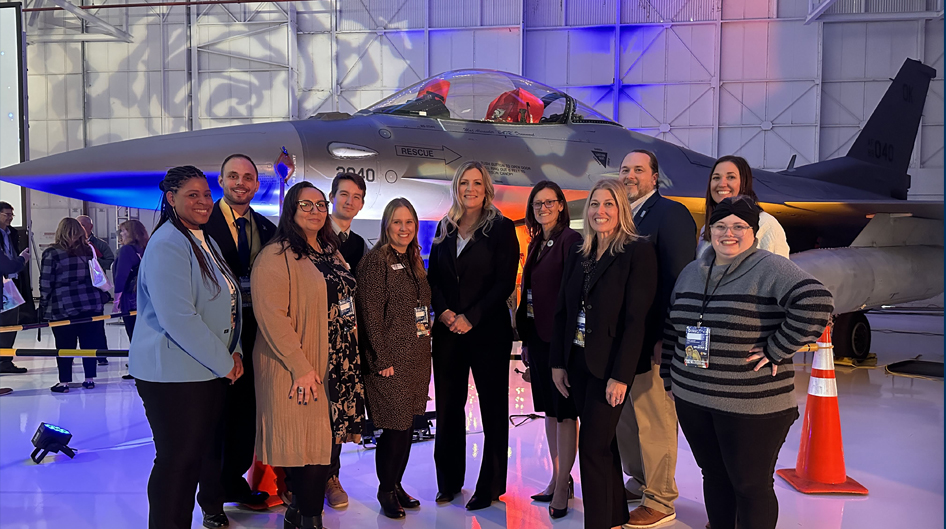Careers that Change the World: Geosciences Published April 17, 2017

In a world dependent on natural resources, environmental quality, and accurate forecasting, careers in the geosciences field are critical. Geoscientists use their knowledge of Earth and how its systems work to improve the quality of human life and to wisely allocate the use of our natural resources. Students in Oklahoma City can begin their Geoscience education at Rose State, opening the doors within a broad field of study to any number of rewarding careers.
What Exactly is Geoscience?
Geoscience is an all-encompassing term for the branches of science related to the study of Earth. Built on a solid foundation of mathematics, physics, chemistry, and biology, geoscience involves looking at the various layers of the earth and how they all work together to sustain life. From the geosphere to the hydrosphere, biosphere, atmosphere, and beyond, geoscientists must understand how many layers of ecosystems and environments interact and work together.

What Career Options Do I Have within Geosciences?
Eric Johnson, Professor of Geology at Rose State, says that students in his sector of the Geosciences Program have a variety of career options.
“I have had students go on to receive bachelor’s and master’s degrees in a number of fields,” Johnson says. “Many have looked into working with government agencies and environmental contractors. Geology is a very broad degree that can relate to a number of associated fields.”
Because the areas of study within geoscience are so diverse, the career options for geoscientists are also diverse. Most geoscience careers fall into one of three major areas:
- Geology/oil and natural gas
- Meteorology/atmospheric sciences
- Natural resources/environmental sciences
State and federal agencies employ a large number of geoscientists within organizations like NASA, the EPA, the Army Corps of Engineers, the U.S. Geological Survey, the Department of Energy, the National Oceanic and Atmospheric Administration (NOAA), and the U.S. Forest Service.
Within meteorology in particular, the five top employers of geoscience graduates include the National Weather Service, NOAA, the military, radio and television stations, and education/consulting.
Geoscience graduates who choose a natural resources-focused specialty can work for mining companies, oil exploration businesses, engineering firms, and energy companies. No matter the discipline students choose within the Geosciences Program, Oklahoma offers plenty of relevant job opportunities for graduates.
Job Outlook for Geosciences in Oklahoma and Beyond
According to Projections Central, Oklahoma’s growth rate for geosciences jobs is expected to rise above 17 percent through 2024, with median salaries for all earners well above $100,000 (Bureau of Labor). Across the country, geoscience-related careers are expected to grow 10 percent (2014-2024), a rate faster than the national average.
Why get a Geosciences Associate’s Degree at Rose State?
Rose State offers a Geosciences Associate in Science degree program that covers the curriculum typically found in the first two years of a four-year geosciences baccalaureate degree. Most graduates of this program can easily transfer as a junior to a four-year institution to complete their degree, having saved thousands of dollars in tuition by starting out at Rose. “We are always available to our students to discuss course transfers, and we have worked on transfer agreements with other institutions so that our students are able to transfer our courses without issue to continue their education,” says Johnson.
Johnson says that the smaller class sizes at Rose allow for more interaction with instructors. “This way, we can get to know our students better, which allows us to tailor our advice to their end career goals,” he says.
Classes involved
Depending on which track students choose within Rose’s Geosciences program — Atmospheric Sciences, Earth Sciences, or Geology — some combination of these classes will be involved, in addition to core classes and electives:
- Programming for Meteorology
- Meteorology
- Basic Forecasting
- History of Life on Earth Lab
- Physical Geology
- Earth Science
- Geologic Mapping
- Physics
- Calculus
- Chemistry
“My students tend to find the mathematics part of the degree rather challenging since calculus is required in the Geosciences, and most tend to enjoy our program-specific courses,” says Johnson. “In Geology, my students tend to enjoy Introduction to Physical Geology, Introduction to Geologic Mapping, and our Capstone course the most. The Capstone can be a discussion-based course, a research paper, or possibly an internship.”
Get a Head Start on Your Geosciences Career
The field of geoscience can open the door to many exciting careers, especially in Oklahoma. Whether you’re interested in natural resources, the environment, energy, engineering, or weather, an associate’s degree in Geoscience could be the perfect start to your education and your future career.
To learn more about the Geosciences program at Rose State, contact Academic Advisor Nick Bastani at 405-736-0280.



